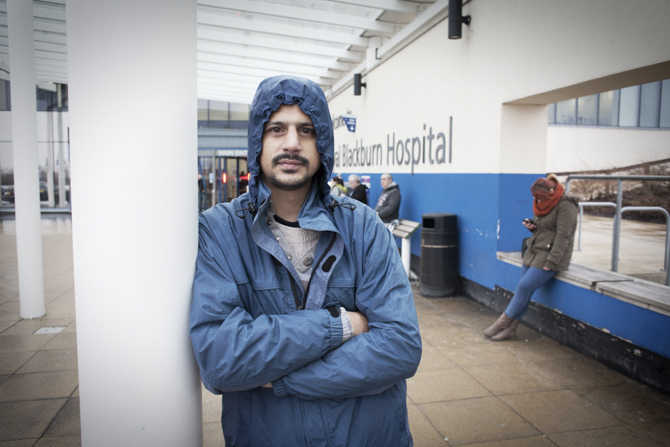“Do you think you can work?”
…continued from Fit for work?
At the hospital we eventually find the right place and are promptly ushered into a standard consulting room where a pleasant nurse – she tells us later she used to work on a drug and alcohol team – explains the procedure and starts asking questions.
She works through each of Richard’s symptoms: ADHD, alcohol dependency, hearing loss, anxiety and depression, and asthma and asks the same questions for each, typing his responses. “What are the symptoms of your ADHD?”
Richard is nervous. “Lack of concentration, confusion,” I recall he says.
She asks who diagnosed the condition, when, what tests did they do? When was the last time he saw a medical professional about this condition? She asks about his medication and then a series of standard questions about his daily routine. Can he cook for himself? Can he use a microwave? Can he wash himself? How often does he use the toilet at night?
The questions are rigid and formulaic. When she asks if he can use a microwave to heat and cook food Richard replies he can’t cook but he does heat food. “I can’t differentiate,” she says, “I’ll put down, cook and heat.”
The inadequacies of these ATOS assessments are well documented elsewhere but the irony of Richard’s situation isn’t lost on me. His ‘headline’ symptoms are an inability to concentrate and a tendency to get confused and here he is, sitting on the edge of his chair, being expected to articulate expansive answers to these quick fire questions and build his own case for staying on a disability benefit.
Throughout the half hour assessment the nurse makes it clear that she is not the one who will make the final decision. That will be left to a Department of Work and Pensions case manager who will read the report having never met Richard.
“I was expecting to be able to go into more detail about my own personal circumstances,” he says on our way back. “There should have been more on the emotional side, how ADHD affects me.”
“Although I barely know you Richard, I think I found out more about you in our thirty-minute journey there than she did in that formal interview.”
“You’re right. You did. I was much more relaxed.”
“Do you think you can work?” I ask.
“My concentration levels only allow me to do things in small quantities. It would need to be something I enjoy, something I can focus on. Anything boring or mundane, then I just wouldn’t be able to stick with it.”
“And as it stands now, you’re an alcoholic. Do you think you could actually hold a job down? Could you leave the house at eight and come back at six without having a drink?”
“No. No, I couldn’t.”

